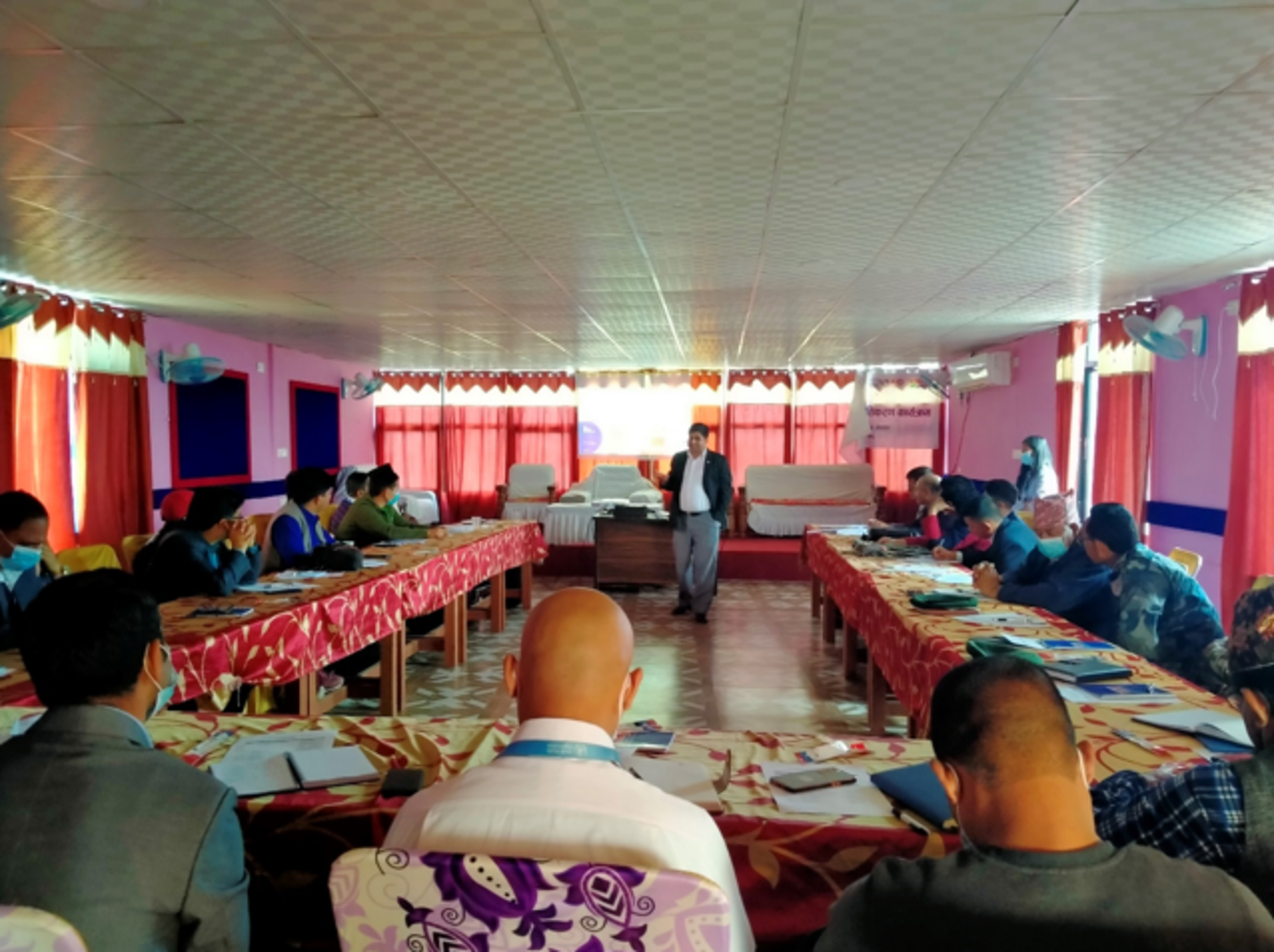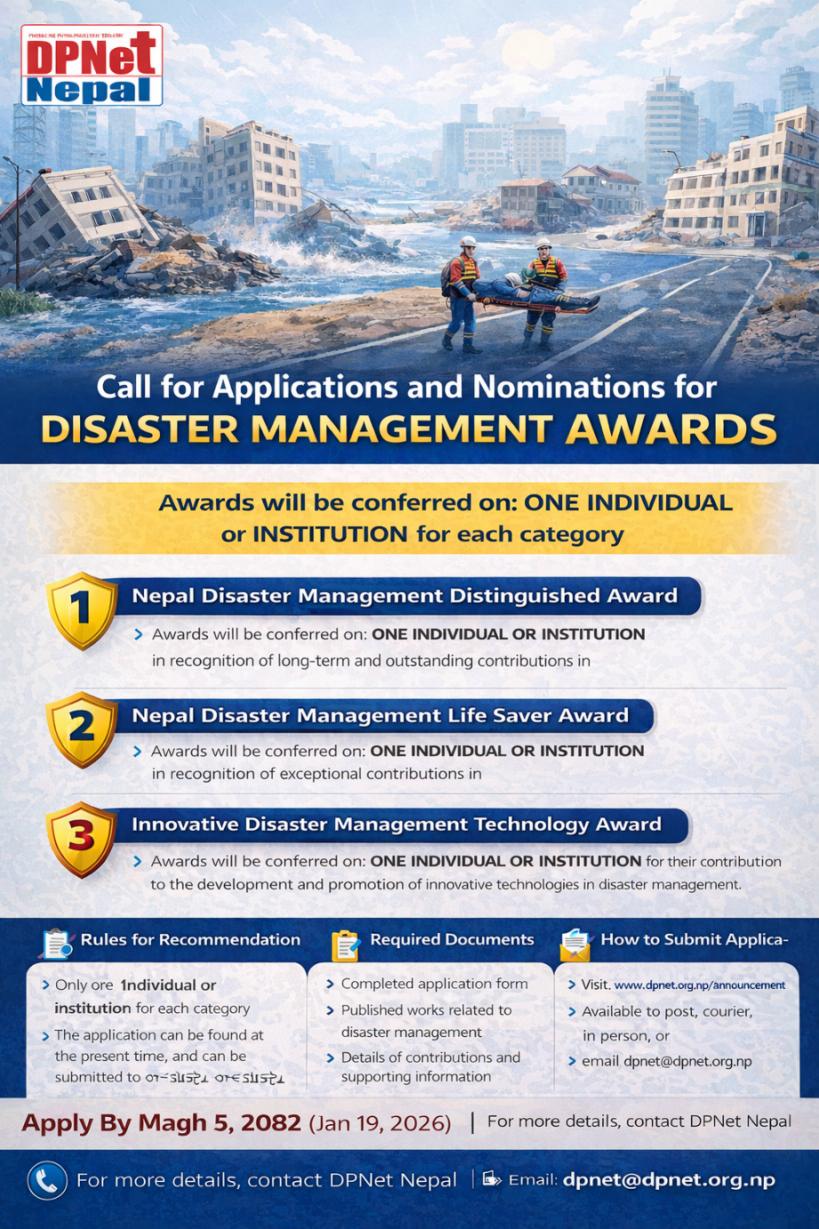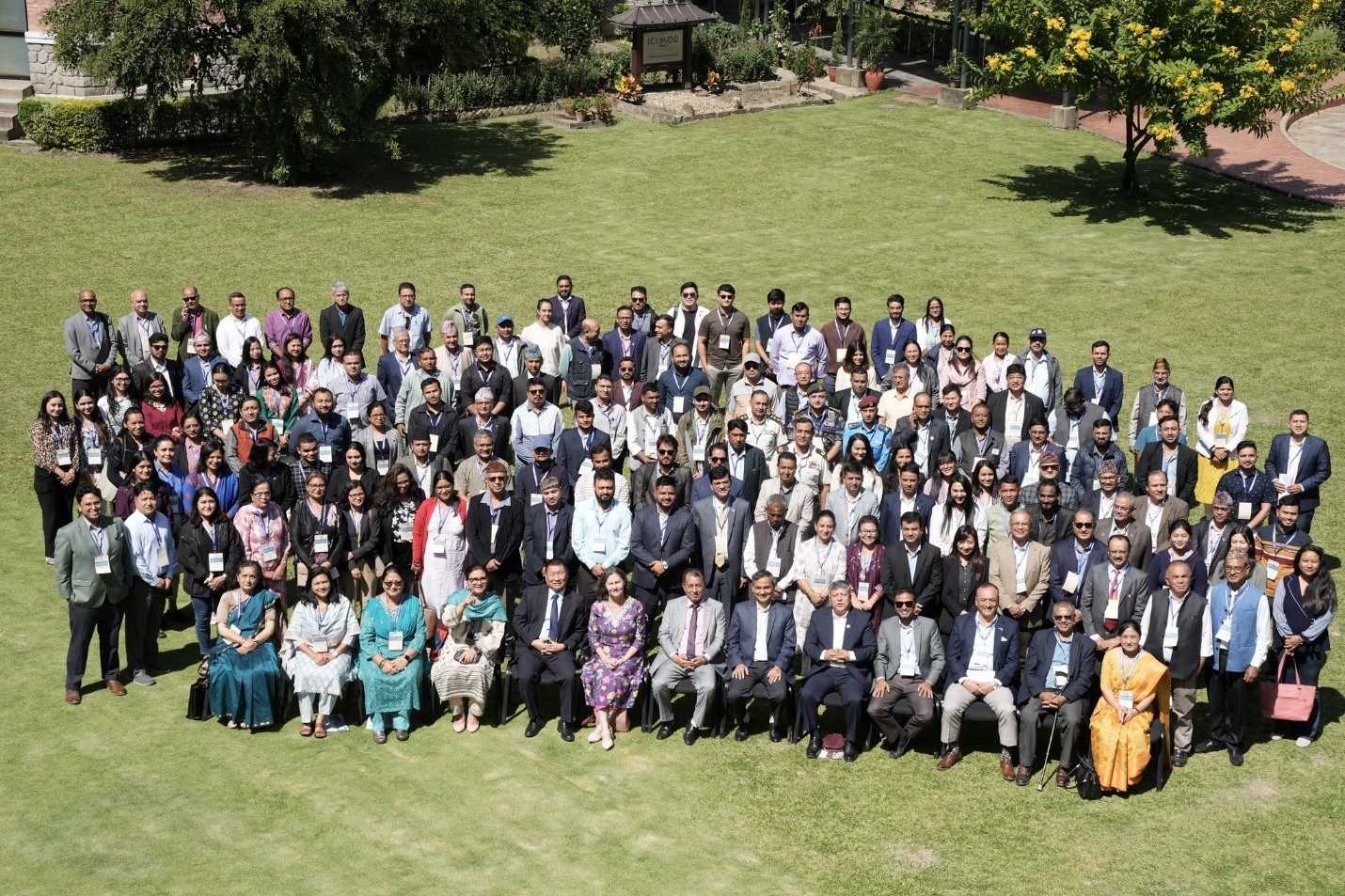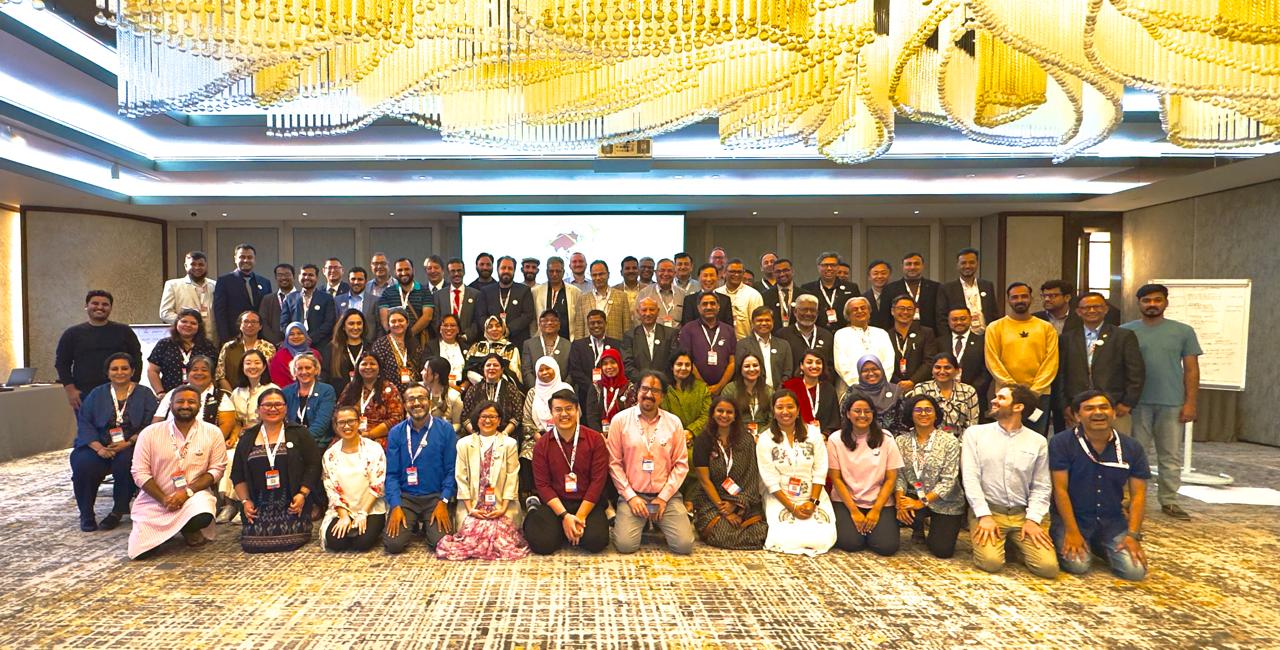Sensitization Program on Sphere Standards, Karnali Province
Mar 16, 2022

DPNet Nepal, with an aim to share knowledge and learnings of DRR, organized a Sphere Sensitization Program in close coordination with National Disaster Risk Reduction and Management Authority (NDRRMA) and Ministry of Internal Affairs and Law (MoIAL), Karnali Province on March 10, 2022 at Hotel Nirvana, Birendranagar Surkhet. Dr. Dijan Bhattarai, Under Secretary and Spokesperson of NDRRMA chaired the sensitization program. Mr. Prem Raj Giri, Secretary of Ministry of Internal Affairs and Law (MoIAL), Karnali Province graced the program as Chief Guest. Mr. Rishi Raj Acharya, Under Secretary of Ministry of Federal Affairs and General Administration (MoFAGA), Mr. Kedar Neupane, Former Secretary of Government of Nepal and Dr. Raju Thapa, Acting Chairperson of DPNet Nepal, graced the program as a special guest.
Major Highlights
- Dr. Raju Thapa, Acting Chairperson of DPNet Nepal welcomed the participants and the guests. Elucidating the relevance of organizing the Sphere Sensitization program, Mr. Thapa said, this program will direct the participants towards maintaining humanitarian standards during the humanitarian crisis. The Sphere Standards are practiced worldwide. The Sphere Standards tells about food, shelter, health and wash and helps to distribute resources according to the individual’s need and condition. Sphere Standards help to ease the disaster response.
- Mr. Prem Raj Giri, Secretary of Ministry of Internal Affairs and Law (MoIAL), in his opening remarks said, Sphere Standard is an internationally accepted and adopted standard in DRRM and war since 1997, amended time and again with consultation with experts, according to the need. This is a technical subject, it tells which area needs to focus on and details that humanitarian assistance should be provided to the affected according to the need and condition of the affected. Sphere Standard is focused on human rights of the affected community and ensures standards and accountability while providing humanitarian assistance. Highlighting the relevance of the sensitization program, the guest of honor Mr. Giri said, since the program is targeted to the humanitarian practitioners, it will definitely contribute towards the working efficacy of the participants.
- Mr. Bishnu Prasad Timilsina, Resource Person, facilitated the technical sessions of the Sphere Standard Sensitization program. He facilitated the session with question answers, games, open discussion and power point presentation. His sessions included Introduction to Sphere Standard, Principle of Sphere Standard, Core humanitarian standard, Protection Principle, Technical Chapters: food security and nutrition, WASH, Shelter and settlement, and health; and GESI Mainstreaming in Humanitarian Response. Sphere standard is need based, internalizing the fact of diversity of people and their needs. Humanitarian assistance therefore is delivered according to the condition and need of the individual. Based on the principle of human rights, the Sphere Standard envisioned that people have the right to get assistance with dignity. The resource person in conclusion, asked the participants to abide by the charter of humanitarian standard while delivering humanitarian standards during disaster situations. And, Sphere Standard is based on the principle of substantive equality and the sensitization program is successful in making the participants inquisitive about the standard.
- Mr. Krishna Rokaya, Officer of MoIAL, Karnali Province, made a presentation, ‘An Overview of Disaster Situation of Karnali Province’, that highlighted initiatives the provincial government has undertaken so far for disaster risk management. His presentation briefed the Laws, Regulations, Directives, Procedures, Guidelines the province government has formulated. He emphasized the necessity of quick and relevant information flow and safety of humanitarian workers.
- Mr. Anil Maharjan, Program Coordinator of Environment and Public Health Organization put queries on Mr. Rokaya’s presentation. He said, Karnali Province has a high rate of human casualties because of road accidents in recent years. Many of the casualties can be saved if we provide basic first aid training to the community and placing backboards on the roadside. Therefore, the province level government should equip the municipalities with basic equipment and preparedness need to be prioritized.
- Dr. Raju Thapa, Acting Chairperson of DPNet Nepal facilitated the session on ‘Sphere Localization Effort in Nepal’. DPNet Nepal is the focal point and took lead in translating Sphere Standards. The focus is to maximize the implication of this universal Sphere Standards in our Nepalese context.
- Mr. Rishi Raj Acharya, Under Secretary of Ministry of Federal Affairs and General Administration (MoFAGA), facilitated the session on ‘Issues of Humanitarian Standard in DRR Localization Process’. In his brief presentation, he shared that DPNet Nepal eased the challenges that may occur while implementing the international Sphere Standard in local context by leading the Sphere Standard translation in local context. He said, we may have to face different situations unless we are well prepared. MoFAGA has been coordinating with three levels of government to make a preparedness plan for DRR. Disaster response becomes justifiable if we prepared well in advance. He said the three levels of governments need to integrate the Sphere Standard to minimize the challenges of implementation while providing assistance to the affected. MoFAGA instructed the three levels of governments to give top priority to practice and maintain the humanitarian standards in DRR. He shared that MoFAGA's three days’ capacity building training to people’s elected representatives includes a session on Sphere Standard sensitization to ensure MoFAGA's commitment to integrate humanitarian assistance during DRR response. He asked the Province Government to provide assistance to VDC and Municipalities in internalizing and implementing the humanitarian assistance in DRR. He asked the Municipalities and VDCs to reflect the Sphere Standard while formulating preparedness plans.
- Mr. Kedar Neupane, Former Secretary of MOHA, said, policy making sectors need to be given orientation on Sphere Standard for effective implementation and practice of humanitarian standard in DRR. The Sphere Standard existed with the spirit of substantive equality while delivering humanitarian assistance so that the damages can be minimized and the whole DRR process is managed well in favour of affected people. He shared, Karnali Province has become accident prone in recent days, which causes human causality and economic damages. The Provincial government should pay proper attention and take action to mitigate the risk. All three levels of government should work collaboratively to reduce the risk of disaster. Moreover, NGOs and Private Sectors need to work in coordination with the government in DRR. In conclusion, he asked DPNet Nepal, to publish a 10-15 pages’ gist of the Sphere Standard as a handbook so that the message could reach a larger population.
- Dr. Dijan Bhattarai, Under Secretary of NDRRMA and Program Chair, in his closing remarks thanked all the participants and the DPNet Nepal for organizing the program. He emphasized on the necessity of collective initiation of Province and Local Government in DRR. He urged all the stakeholders to share the responsibility and play a proactive role in mitigating the risk of disaster. He stressed the participants to implement the globally practiced humanitarian standards while delivering assistance during disaster.
Conclusion:
The Sphere Standard Sensitization Program successfully educated the humanitarian practitioners of Karnali Province about Sphere Standards. The open discussions, resource persons’ remarks further gave clarity and helped to develop the better understanding of the participants. The participants were committed to practicing the Sphere Standard in their response to the humanitarian crisis.
The Sphere Standard Sensitization Program successfully educated the humanitarian practitioners of Karnali Province about Sphere Standards. The open discussions, resource persons’ remarks further gave clarity and helped to develop the better understanding of the participants. The participants were committed to practicing the Sphere Standard in their response to the humanitarian crisis.











